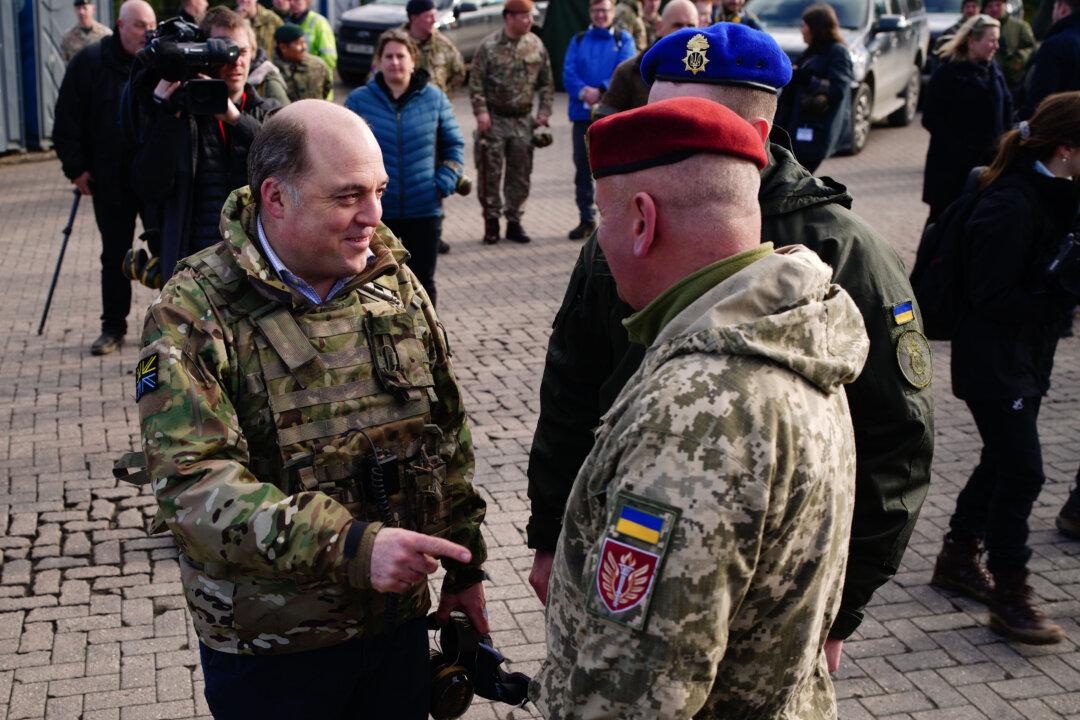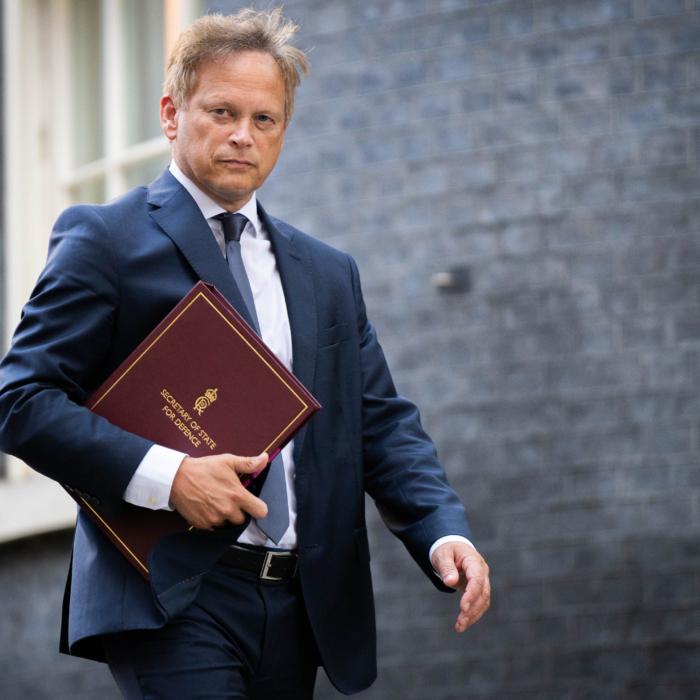Former Defence Secretary Ben Wallace has called on the next government to spend 3 percent of GDP on defence.
In April, Prime Minister Rishi Sunak pledged to increase defence spending to 2.5 percent of GDP by 2030.
Labour says it is also committed to allocating 2.5 percent of GDP on defence “as soon as possible,” but Mr. Wallace said it was not enough.
Speaking to BBC Radio 4’s “World At One” programme, Mr. Wallace said, “The threat is rising towards the end of the decade, I would suggest, as others have, that towards the end of the decade we should be spending 3 percent of GDP.”
“However, to get there you have to follow a progressive line, you can’t just dollop billions of dollars or pounds to a department who won’t be able to spend it,” he added.
Mr. Wallace, who was replaced as defence secretary by Grant Shapps in August 2023, said he did not regret reducing the size of the British Army to its lowest payroll in history, saying, “We weren’t able to fund defence for the size of the army, and we have been like that since I served in the army in 1991.”
He said that with defence spending being cut since the end of the Cold War “hollowing out” the army had been “a way for successive Labour governments and Conservative governments to hide.”
“Governments didn’t want to pay for defence, they wanted to pose in front of the Red Arrows, and Trooping the Colour, and you know Tony Blair’s government wanted to send the army to the Iraq war, but they didn’t want to really pay for it properly,” added Mr. Wallace, who is stepping down as an MP at the election.
Labour leader Sir Keir Starmer focused on defence on Monday and made a speech at the Fusilier Museum in Bury, Greater Manchester, flanked by 10 of the 14 candidates the party is putting forward at the election who are military veterans.
Sir Keir said: “Within the first year of a Labour government we will carry out a new strategic defence review.
Starmer: ‘We Have to Be Fit to Fight’
Sir Keir said: “We have the smallest army since the time of Napoleon, at a time when other countries are firmly on a war footing. And so even as we work tirelessly for peace, we have to be fit to fight.”“So let me be unequivocal. This Labour Party is totally committed to the security of our nation, to our armed forces and, importantly, to our nuclear deterrent,” he added.

Asked under what circumstances he would use Britain’s independent nuclear deterrent, he said, “Obviously that is a matter of high confidentiality.”
“You wouldn’t and nobody would expect someone who is serious about being prime minister to disclose the circumstances in which he or she might take action,” he added.
Shapps Claims Starmer Lacks Courage
But Defence Secretary Grant Shapps said Sir Keir’s speech was “empty” and said: “Starmer’s choice for foreign secretary, David Lammy, has described the UK’s nuclear deterrent as ‘senseless.' This rubbishes the claim that Labour have changed.”“It’s clear Starmer lacks the courage and conviction to stand up for Britain’s security,” he added.
Shadow defence secretary John Healey said the stance of Sir Keir’s predecessor, Jeremy Corbyn, on defence was “long gone.”

Mr. Healey told LBC: “Jeremy Corbyn is long gone, he’s not in Labour, he’s not standing for Labour, the Labour Party has changed with Keir Starmer, just as the world has changed.”
“Make no mistake about Keir Starmer, this is a man who was director of public prosecutions, put away the most dangerous terrorists this country has ever faced, he knows as I do, the first duty of any government is to keep the country safe and protect our citizens,” he added.
The 14 ex-military candidates Labour is fielding include three former Royal Marines and personnel from the Rifles, Intelligence Corps, Parachute Regiment, Royal Artillery, Royal Engineers, and the RAF.
One of them, Fred Thomas, a former Royal Marine, is standing against the Conservatives’ Johnny Mercer, a former special forces soldier who is currently veterans’ minister.
The independent inquiry into Afghanistan, sitting at the Royal Courts of Justice in London, is investigating allegations UKSF1, a unit of British special forces, executed Afghan men—sometimes unarmed and presenting no threat—between 2010 and 2013.







